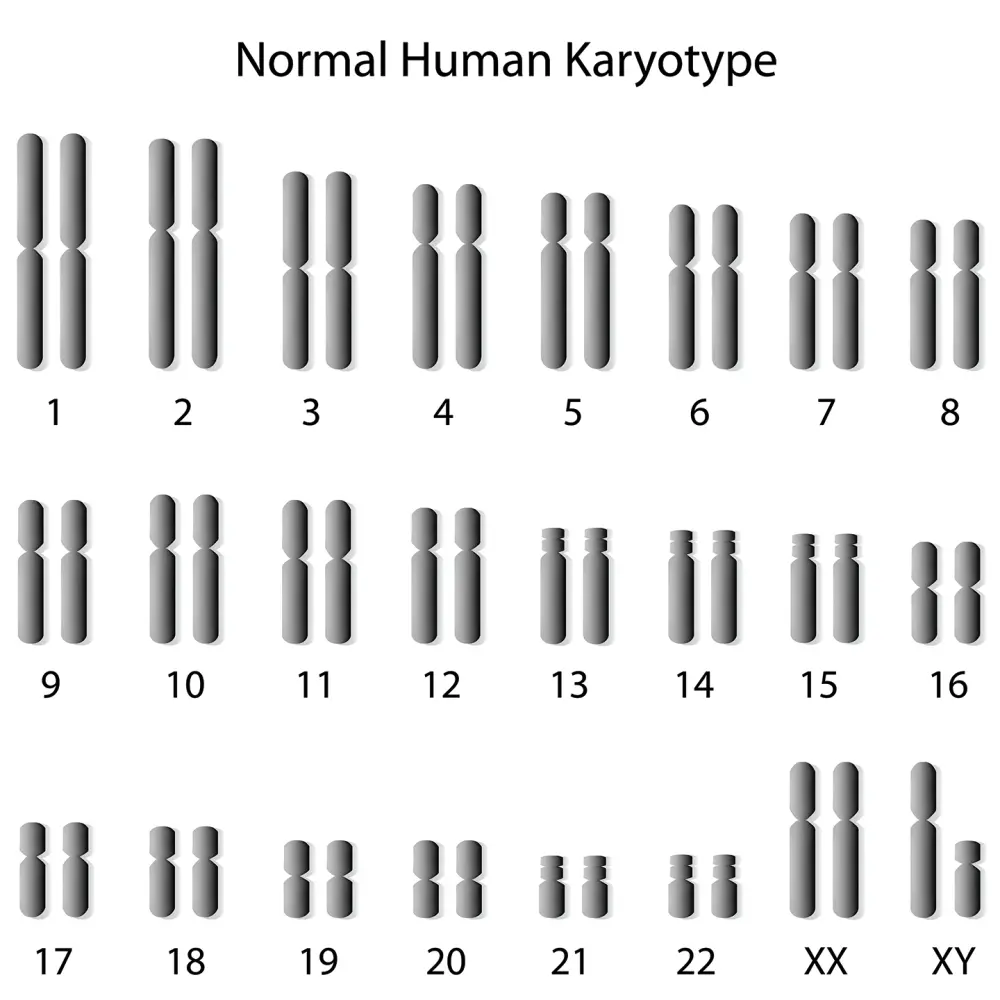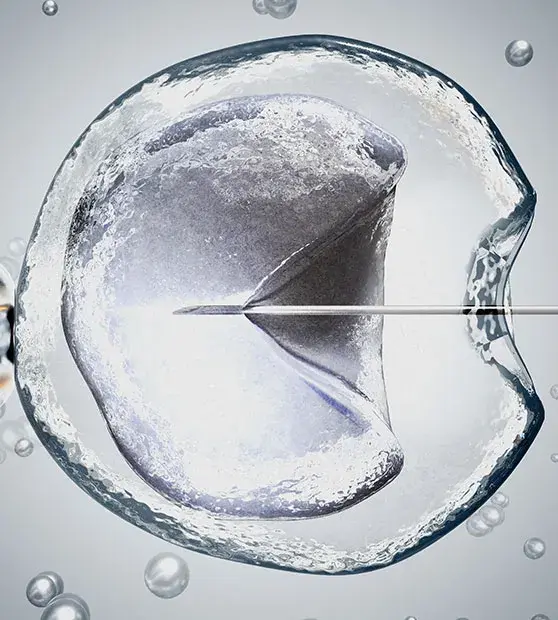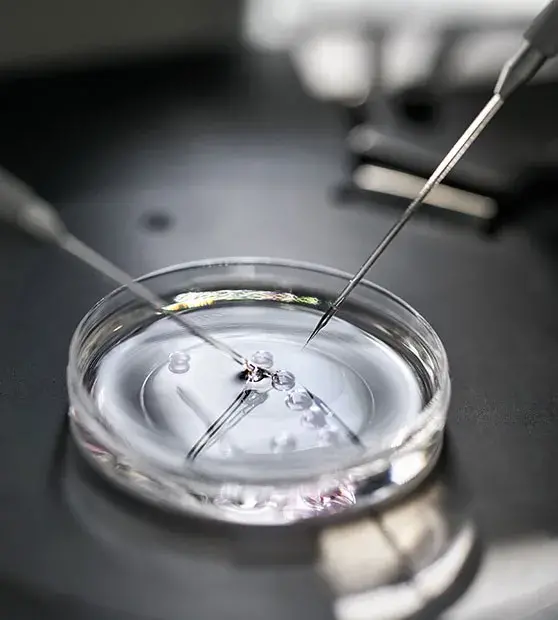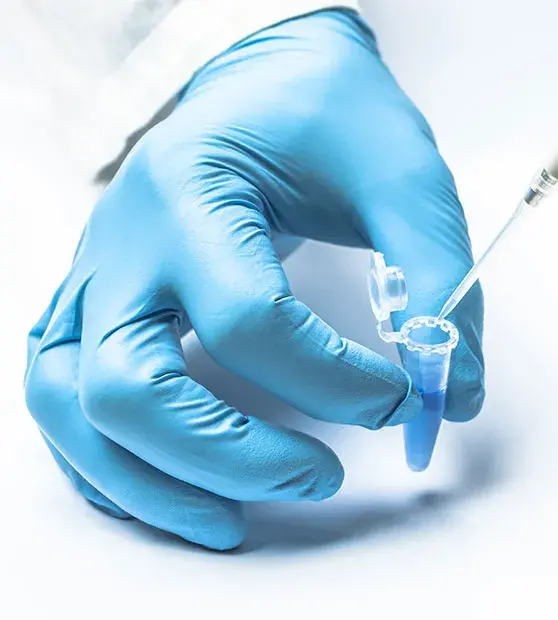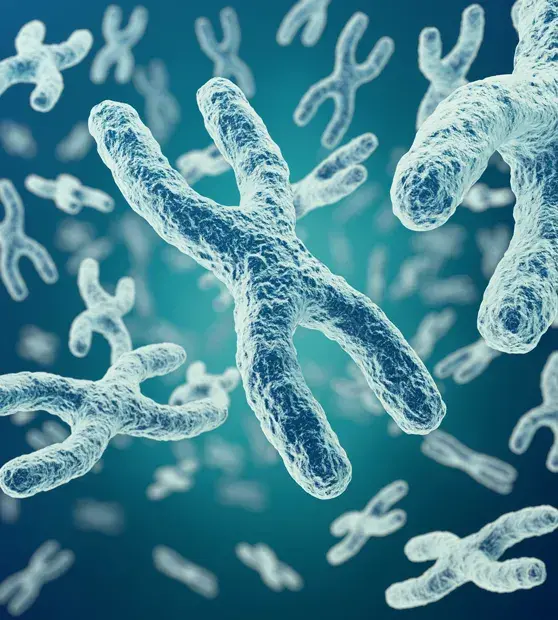Karyotyping
A karyotype evaluates a person’s chromosomes including their structure, number, and arrangement. A normal karyotype contains 46 chromosomes (23 pairs), including the sex chromosomes (XX for females and XY for males). A numerical change or structural rearrangement involving any of the chromosomes may lead to a genetic disorder or infertility.
Why and when is a Karyotype performed?
This test is performed when
- an individual shows congenital anomalies associated with a genetic disorder (e.g. abnormal physical features, behavioral problems, or developmental delays)
- a couple experiences repeated miscarriages or implantation failures
- a fetus is suspected of having a chromosomal abnormality
The test can be performed on almost any tissue, including - Blood
- Amniotic fluid or chorionic villus, products of conception, etc.
How is a kartyotype performed?
- Karyotype analysis is preferably done on cells undergoing cell division. Cells are cultured and then arrested at a specific stage when the genetic material is organized into chromosomes. The chromosomes are stained and photographed using a microscope to produce a karyotype image for each cell.
- The image is then analyzed by a trained scientist with the help of specialized computer software.
How does Karyotypoing work?
- The chromosomes of a cell are stained with a dye and photographed using a microscope to produce a karyotype image.
- Then the image is analyzed by a clinical scientist by using specialized computer software.
Karyotype analysis is preferably done on cells at a stage while they are dividing. During this stage, chromosomes are visible under a microscope. In the non-dividing stage, the chromosomes exist as long thin threads. When a cell divides the fine threads are wound up into compact packages that can be seen and studied under the microscope.
How to interpret the results of Karyotyping?
Results of the karyotype test are usually available within 14-28 days. A normal karyotype is 46,XX for a female and 46,XY for male. Any deviations are considered abnormal. The clinical relevance of an abnormal karyotype and its impact on an individual’s health or treatment plan will be communicated by the requesting physician or genetic counsellor.
